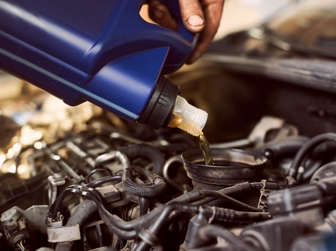Fuel is the lifeblood of your vehicle, and choosing the right type of fuel is essential for performance, efficiency, and longevity. In South Africa, where fuel prices can significantly impact the public, understanding your car’s fuel needs can help you make smarter decisions. This guide will walk you through the different fuel types, how to determine which one your car needs, and the potential consequences of using the wrong fuel.
The ultimate guide to choosing the right petrol for your car
South Africa’s diverse car market means there’s no one-size-fits-all approach when it comes to fuel. Whether you drive a compact hatchback, a rugged bakkie, or a luxury SUV, choosing the correct petrol type is essential to keep your engine running smoothly and avoid costly repairs.
Understanding petrol types for your car
When choosing fuel, it’s important to understand the different petrol types available. Your car’s owner manual will provide the most accurate information about whether your vehicle needs 93 or 95 octane fuel. Using the wrong petrol type can cause significant engine damage, affecting both performance and fuel efficiency.
To avoid costly repairs, always ensure you’re using the correct petrol type for your car’s engine. By doing so, you’ll improve fuel efficiency, protect your engine, and extend your vehicle’s lifespan.
The difference between diesel, unleaded 93 and unleaded 95
Diesel (50 ppm and 10 ppm)
Diesel engines are typically built to handle the higher compression ratios required to ignite diesel fuel, which has different properties from petrol.
50 ppm sulfur means the fuel contains 50 parts of sulfur per million parts of fuel.10 ppm sulfur means the fuel contains 10 parts of sulfur per million parts of fuel. This would be considered ultra-low sulfur diesel, significantly reducing the amount of sulfur emissions compared to its 50ppm counterpart.
Unleaded 93 and 95 Octane
Petrol-powered vehicles require unleaded fuel, and in South Africa, there are two: 93 Unleaded and 95 Octane. Unleaded 93 is ideal for inland areas, where altitude affects combustion. In contrast, Unleaded 95 Octane is better suited for coastal regions, where higher octane fuel performs more efficiently due to lower altitude levels. Higher octane fuel is generally recommended for performance vehicles, as they resist knocking and pre-ignition, which can damage the engine.
Key Differences in Engine Design:
- Compression Ratio:
- Petrol Engines: These engines have a lower compression ratio compared to diesel engines. This means that the air-fuel mixture in a petrol engine is compressed to a lower level before being ignited by a spark plug.
- Diesel Engines: Diesel engines have a higher compression ratio, which allows the air to be compressed to a much higher level, causing the fuel to ignite due to the heat of compression rather than a spark.
- Ignition Method:
- Petrol Engines: They use spark plugs to ignite the air-fuel mixture. The fuel used (unleaded petrol) is designed to vaporize and ignite easily when sparked.
- Diesel Engines: Diesel fuel ignites under high pressure and temperature without the need for a spark plug, which is why diesel fuel is designed to be more resistant to ignition until it reaches the high compression levels in the engine.
Why Unleaded Petrol is Common in Most Combustion Vehicles:
- Fuel Characteristics: Petrol, particularly unleaded petrol (which is free of lead additives that were once used for anti-knocking properties), is less dense and evaporates more easily than diesel. It is also designed to ignite smoothly with a spark at lower temperatures, making it ideal for smaller, more common combustion engines in cars.
- Emissions and Performance: Petrol engines tend to produce less particulate matter than diesel engines, which is why they are preferred for most passenger vehicles. They also have lower emissions of nitrogen oxides (NOx), making them more suitable for urban environments and stricter environmental regulations.
- Lower Torque Needs: Petrol engines are typically used in lighter vehicles because they do not require the same high torque output that diesel engines provide. Diesel is more suited for heavy-duty applications that need more power and efficiency for towing or hauling.
Why Diesel is Common in Larger Vehicles:
Diesel engines are often used in larger vehicles (like trucks, buses, and large SUVs) because of their higher fuel efficiency, better torque at lower RPMs, and greater power, which is needed for carrying heavy loads over long distances.
Why using the wrong fuel can be costly
Using the incorrect fuel isn’t just an inconvenience—it can lead to serious engine damage that could cost thousands of rands to fix. One of the most common mistakes is putting petrol in a diesel engine. Diesel acts as a lubricant, helping engine components work together seamlessly. Petrol, on the other hand, increases friction, and will damage the fuel system and engine due to its combustion point.
How to get the most out of your fuel
Check your owner’s manual:
- The manufacturer specifies the ideal fuel type for your car, it’s also indicated inside the fuel flap. Using the recommended fuel type ensures optimal engine performance, efficiency, and longevity.
1. Understand your driving conditions:
- City driving: Stop-and-go traffic may require a cleaner-burning fuel, such as 95 octane petrol or 10ppm diesel, to reduce carbon buildup in the engine.
- Highway and long distance: If you travel frequently, choosing a vehicle with an engine variant using a fuel type that offers better fuel economy (such as diesel) can save you money.
- Altitude consideration: At higher altitudes (like Johannesburg), 93 Octane petrol is sufficient, while at coastal areas (like Durban and Cape Town), 95 octane is preferred. Remember to check your vehicle’s owner’s manual, as certain vehicles require 95 Octane petrol even at high altitudes.
2. Consider vehicle age and technology:
- Older cars may not be compatible with newer fuel types (e.g., 10 ppm diesel may not work in older diesel engines without modifications).
- High-performance vehicles and turbocharged engines generally require higher octane fuel.
Saving money on fuel in South Africa
1. Use loyalty and rewards programmes
- Many petrol stations offer loyalty programmes to help you save on fuel costs – whether it’s connected to Dischem, Clicks, Pick n Pay’s Smart Shopper.
2. Change your driving habits
- Maintain a steady speed
- Avoid excess idling
- Avoid aggressive or unnecessary acceleration
- Keep tyres inflated to the correct pressure
- Reduce unnecessary weight in your car
3. Choose fuel-efficient cars
- If you’re in the market for a new car, consider the fuel consumption. Hybrid and diesel vehicles often offer better mileage per litre compared to petrol-powered vehicles.
Final thoughts
Choosing the right engine variant to match your preferred fuel type involves a formula, from the manufacturer’s recommendation to price, efficiency, and driving conditions. By making informed choices, you’ll enjoy efficient performance, extend your car’s lifespan, and maintain its value over time.
Remarkable Features of Renault's Turbo Hatchback
Exploring the BMW X3 M Sport & Its Versatile Lineup


